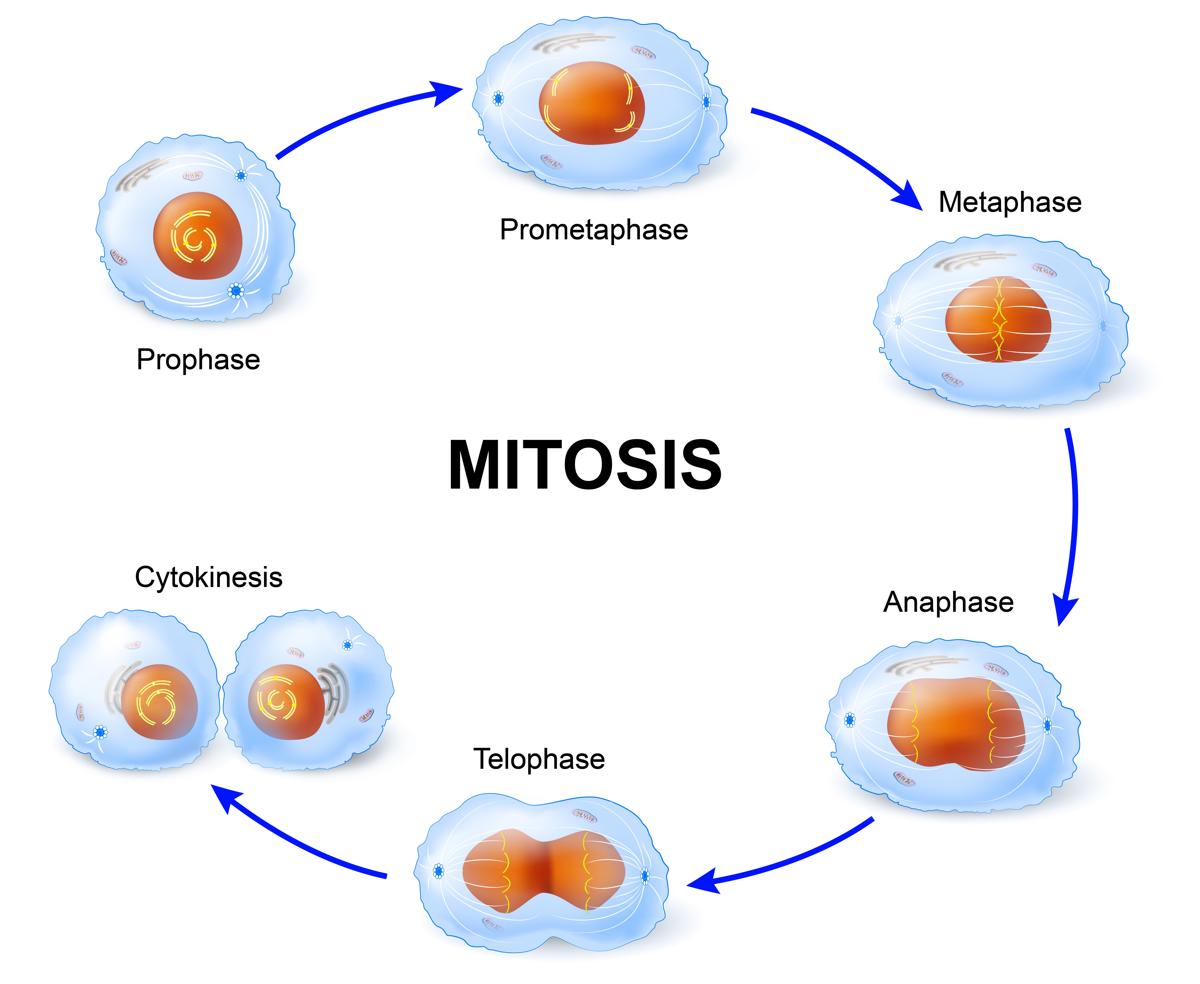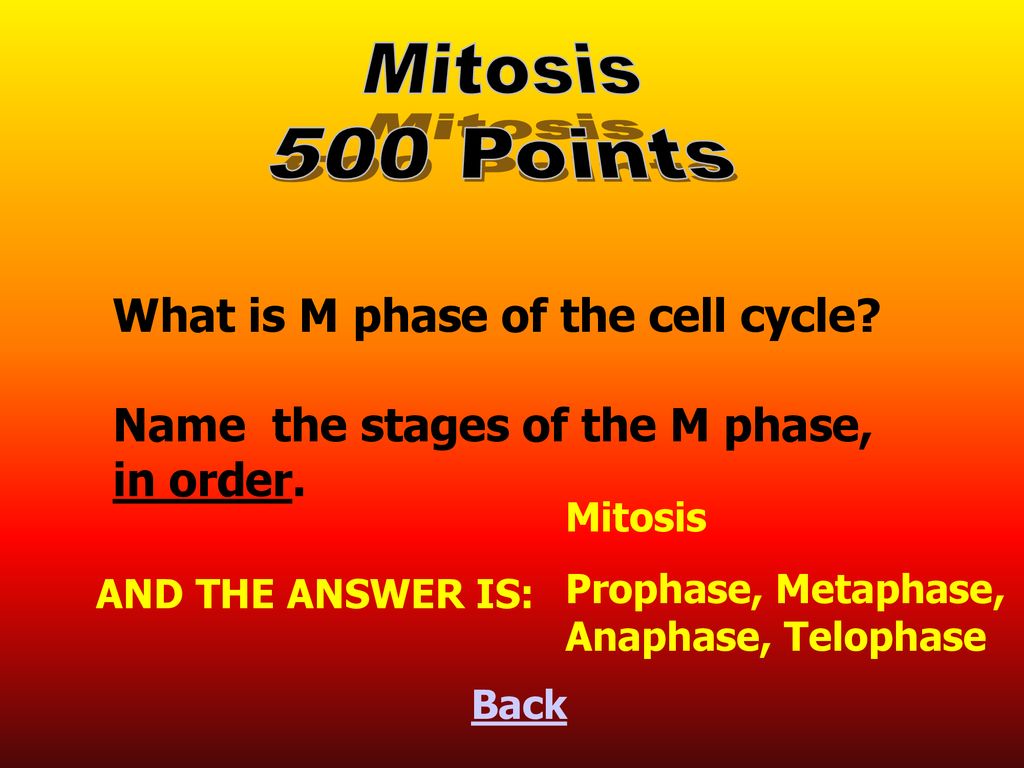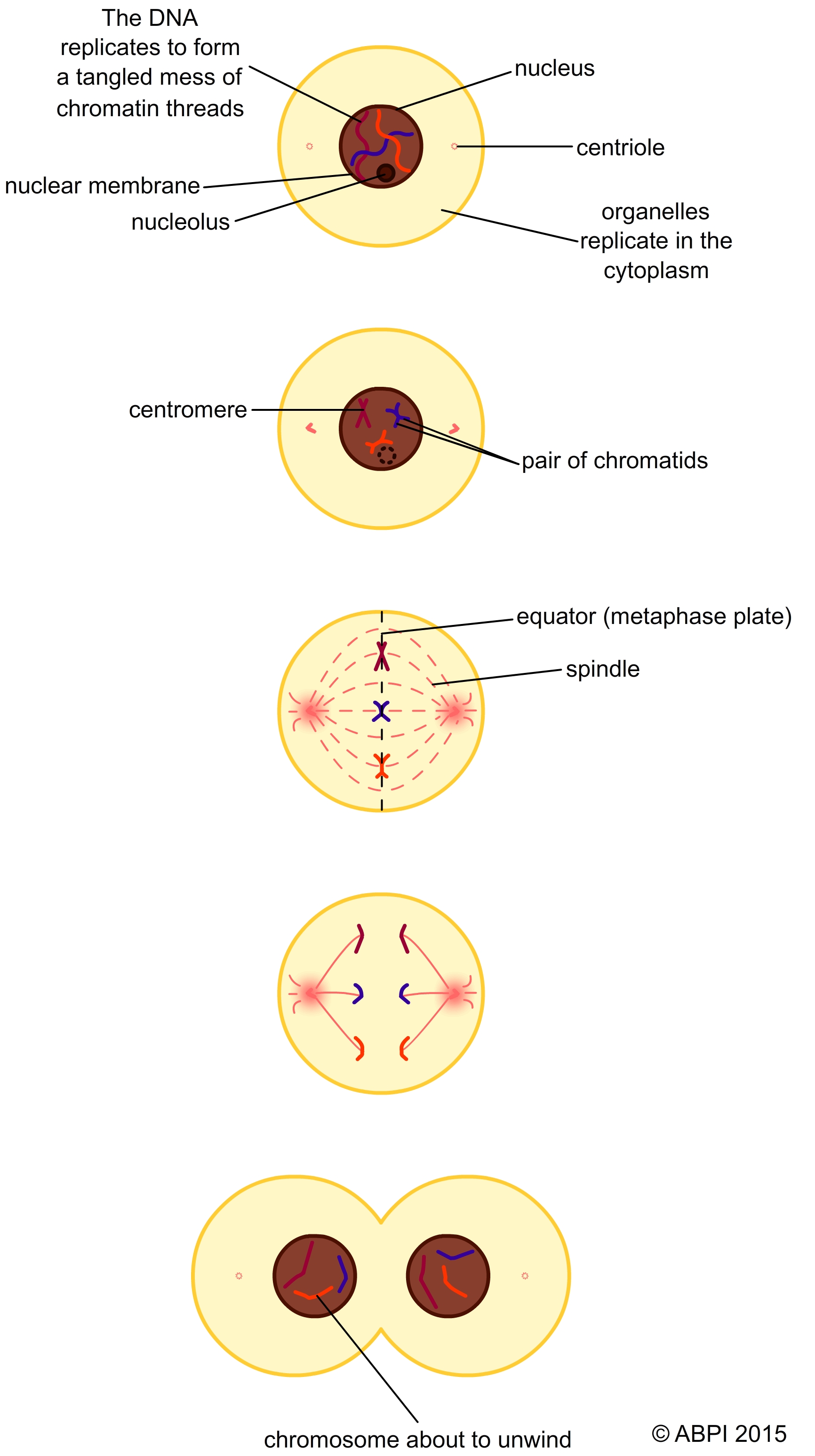Ciri Pembelahan Mitosis Biology Diagrams M phase is the most dramatic period of the cell cycle, involving a major reorganization of virtually all cell components. During mitosis (nuclear division), the chromosomes condense, the nuclear envelope of most cells breaks down, the cytoskeleton reorganizes to form the mitotic spindle, and the chromosomes move to opposite poles. Chromosome segregation is then usually followed by cell M (mitosis) phase: This is the phase in which cell division occurs. Figure 08-01 shows an overview of the stages of the cell cycle. Collectively, we consider G 1, S, and G 2 to be interphase (i.e., the phases "in between" M phase). Figure 08-01: The four stages of the cell cycle.

#2: "Mitosis: Splitting Up Is Hard To Do" by Crash Course If you're a bit exhausted from reading dense material and need someone else to put the stages of mitosis into more accessible terms, head over to YouTube and watch Crash Course's 10 minute video on mitosis, called "Mitosis: Splitting Up Is Hard to Do.". The nice thing about this video is that, while being a bit more thorough Figure: Stages of mitosis. Image Source: Wikipedia (Ali Zifan). Mitosis is divided into the following phases based on the completion of one set of activities and the onset of the other. 1. Interphase. Interphase is a part of the cell cycle where the cell copies its DNA as preparation for the M phase (mitotic phase). The M-Phase, also known as the Mitotic Phase, is a stage in the cell cycle where cell division occurs. It is divided into several stages: Prophase: In this stage, the chromatin condenses into a highly ordered structure called chromosomes. The nuclear envelope breaks down and spindles start to form. Prometaphase: The nuclear envelope is completely broken down, and the chromosomes are free in

National Center for ... Biology Diagrams
G2-phase: Second gap or resting phase during which the synthesis of RNA and proteins from the G1 phase continues. During this period, cells store energy as ATP to be utilized during mitosis. At the end of this stage, cells enter the stage of mitotic division. Mitotic Division (M Phase) 1. Prophase
.jpg)
Phases of the Cell Cycle. Even the most formidable active volcanoes spend far more time dormant than they do erupting, but no one pays much attention to the quiescent periods. In a sense, cells are like this: mitosis is by far the most busy and dramatic part of the cell cycle, but the cell actually spends most of its time in _interphase_. This phase itself includes _G 1 _, S and _G 2 _ stages.

Mitosis: Definition, Stages, & Purpose, with Diagram Biology Diagrams
Before a dividing cell enters mitosis, it undergoes a period of growth called interphase. About 90% of a cell's time in the normal cell cycle may be spent in interphase. G1 phase: The period before the synthesis of DNA. In this phase, the cell increases in mass in preparation for cell division. The G1 phase is the first gap phase. During the S phase, the cell replicates its genome in preparation for cell division or mitosis. Mitosis occurs during the M phase, which occurs after interphase. Phases. Mitosis is conventionally divided into 5 phases: prophase, metaphase, anaphase and telophase, and cytokinesis. In interphase, a nuclear envelope surrounds the nucleus, the DNA The stages that occur during M phase are summarized in Panel 18-1. The complexity and beauty of M phase, however, are hard to appreciate from written descriptions or from a set of static pictures. Panel 18-1. The Principal Stages of M Phase (Mitosis and Cytokinesis) in an Animal Cell.

